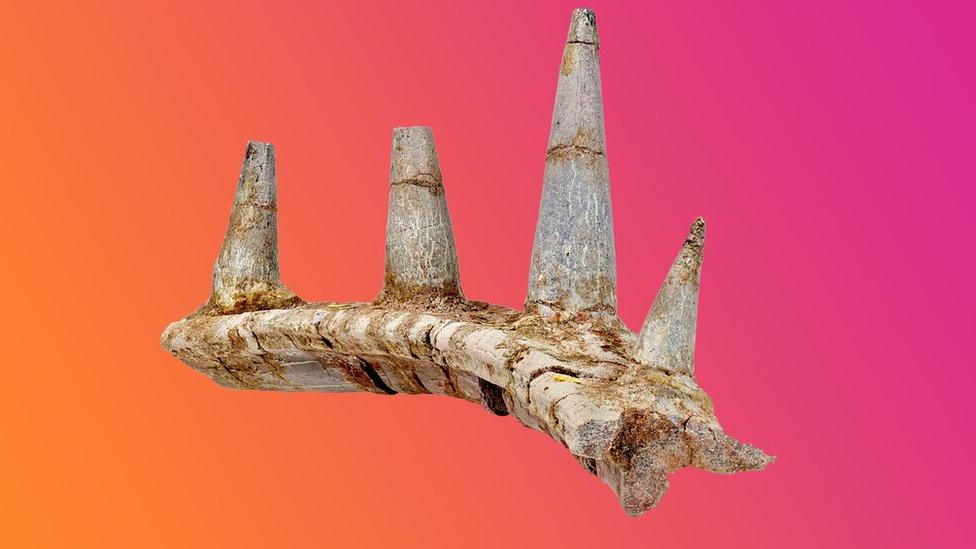Dinosaurs: 'Unusual' spiked dinosaur fossil reveals a new species
- Published
- comments

A new ankylosaur species has been discovered - but why are palaeontologists puzzled by it?
An unusual dino fossil that has spikes running along it has been discovered in Morocco - but what makes it so baffling to palaeontologists?
Well it's the first fossil of its kind to be found in Africa, and spikes are attached to the bone.
The fossil is part of an ankylosaur's rib and was found at the Boulahfa site in the middle of the Atlas Mountains.
Researchers studying the bone originally thought it belonged to a stegosaurus, but on closer inspection of the bone, they noticed a pattern that is unique to ankylosaurs.
But the fossil is from the Jurassic period and is estimated to be 165 million years old - 20 million years older than any other ankylosaur fossil.
'Fake' suspicions
Ankylosaurs were a group of herbivorous dinosaurs that lived during the Cretaceous period - they were known for their armoured tank-like bodies and a club shaped tale
Palaeontologist Dr Susannah Maidment, who owns the fossil, said: "This is a new species of ankylosaur, it's much older than any other ankylosaur that we've found but also it has this really, really strange morphology."
Palaeontologists studying the fossil initially believed it to be fake, because of its strange appearance and age.
Dr Maidment also explains that the spikes that are fused to the rib are strange too, because they are attached so firmly.
"That is really weird. We don't see that in any other ankylosaur, and in fact we don't see that in any other vertebra that we know of, living or dead", Dr Maidment explained.
Researchers initially thought the fossil belonged to a stegosaurus
The fossil is the first ankylosaur fossil to be found from an African continent, but scientists aren't sure why they haven't come across ankylosaur fossils there before.
Dr Maidment said: "It could be because they weren't a very common part of ecosystems in Africa, or it could be that we just haven't found their fossils yet."
The fossil has been named Spicomellus afer: spicomellus means collar of spikes and afer means Africa.
- Published1 July 2021
- Published17 September 2021
- Published3 September 2021
